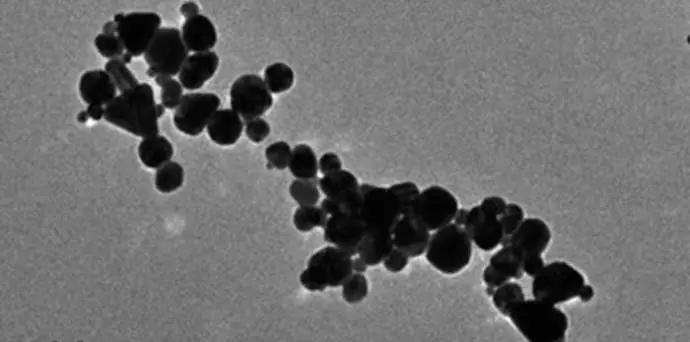In collaboration with Peking University, NYU Polytechnic School of Engineering professors have been working on a new test strip using gold nanoparticles generated by microplasma that demonstrates immense potential for the early detection of certain heart attacks. The novel method works by sensing a specific marker which is several thousand times higher in patients experiencing myocardial infarction.
Kurt H. Becker, a professor in the Department of Applied Physics and the Department of Mechanical and Aerospace Engineering, and WeiDong Zhu, a research associate professor in the Department of Mechanical and Aerospace Engineering, are assisting in the development of a new colloidal gold test strip for cardiac troponin I (cTn-I) detection. Patients who experience myocardial infarctions (MI) have significantly higher levels of cTn-I compared to healthy people.
The new strip uses microplasma-generated gold nanoparticles (AuNPs) that show higher detection sensitivity than AuNPs produced by traditional methods. The surfaces of these nanoparticles attract more antibodies, making the new test strips more effective than conventional ones. The new cTn-I test is based on the specific immune-chemical reactions between antigens and antibodies on immunochromatographic test strips using AuNPs.
Becker and Zhu have previously collaborated in the use of microplasma technology. In addition to its latest application in the generation of AuNP, the technology is used in dentistry for root canal disinfection, tooth whitening and improved bonding. It has also been used in biological decontamination and produce preservation through its role in deactivating biofilms and microorganisms.
Gold nanoparticles are a promising therapeutic tool, although it will likely be years until they are routinely used in disease detection and patient therapy. Their synthesis is time-consuming and expensive due to the labor-intensive process of of synthesising mono diverse and size-controlled gold nanoparticles. In the future, AuNPs may play a role in cancer imaging, drug delivery, tumour detection and degenerative disease treatment. For now, their use is limited to small-scale clinical studies.
Image Credit: NYU
Latest Articles
Nanotechnology, nanoparticles, myocardial infarction, early detection
In collaboration with Peking University, NYU Polytechnic School of Engineering professors have been working on a new test strip using gold nanoparticles ge...










